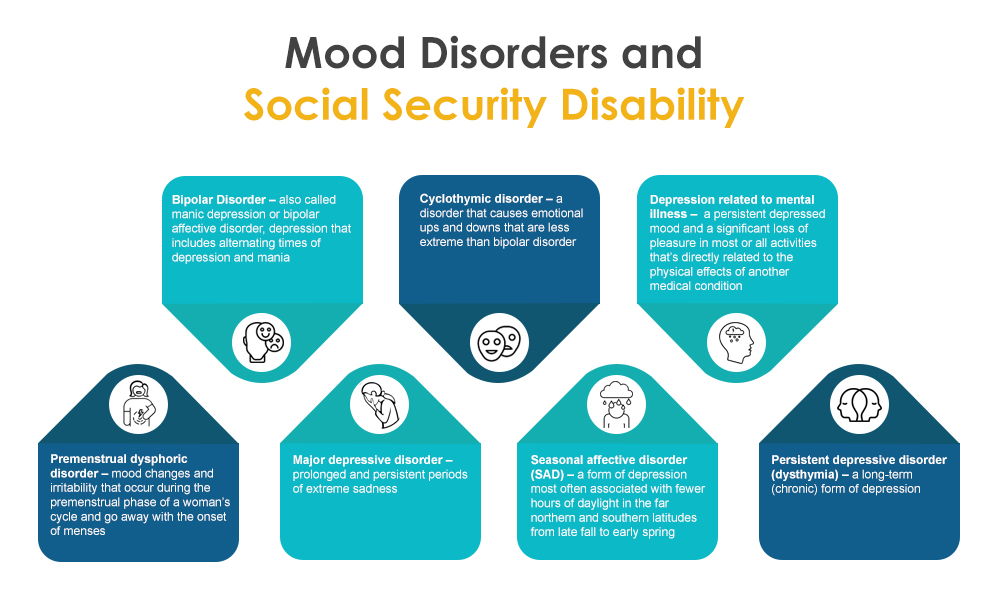
Mood Disorders and Social Security Disability
Mood Disorders and Social Security Disability may go hand in hand with each other. Did you know mood disorders can qualify an individual for Social Security disability benefits? It is true and actually these disorders make up almost 13 percent of those receiving disability benefits.

A few of these disorders include:
- Bipolar Disorder – also called manic depression or bipolar affective disorder, depression that includes alternating times of depression and mania
- Cyclothymic disorder – a disorder that causes emotional ups and downs that are less extreme than bipolar disorder
- Depression related to mental illness – a persistent depressed mood and a significant loss of pleasure in most or all activities that’s directly related to the physical effects of another medical condition
- Premenstrual dysphoric disorder – mood changes and irritability that occur during the premenstrual phase of a woman’s cycle and go away with the onset of menses
- Major depressive disorder – prolonged and persistent periods of extreme sadness
- Seasonal affective disorder (SAD) – a form of depression most often associated with fewer hours of daylight in the far northern and southern latitudes from late fall to early spring
- Persistent depressive disorder (dysthymia) – a long-term (chronic) form of depression
Often a misunderstood illness, mood disorders can distort someone’s mood or emotions. A person suffering from mood disorders may be extremely sad, empty or irritable (depressed), or may have periods of depression alternating with being excessively happy (mania). Anxiety disorders can also affect moods and often occur along with depression. Mood disorders may increase a person’s risk of suicide.
If you’re concerned that you may have a mood disorder, make an appointment to see your doctor or a mental health professional as soon as you can. If you’re reluctant to seek treatment, talk to a friend or loved one, a faith leader, or someone else you trust.
Talk to a health care professional if you:
- Feel like your emotions are interfering with your work, relationships, social activities or other parts of your life
- Have trouble with drinking or drugs
- Have suicidal thoughts or behaviors — seek emergency treatment immediately
Your mood disorder is unlikely to simply go away on its own, and it may get worse over time. Seek professional help before your mood disorder becomes severe — it may be easier to treat early on.
And if your mood disorder has caused you to be unable to work, call us at The Keener Law Firm to help you navigate the disability waters. Our team of experts is here to get you the benefits you deserve. Whether this is your first time applying or your third, we can help you. Call us today at 770-955-3000 and ask to speak to one of our Social Security Disability experts.
*Source MayoClinic.org